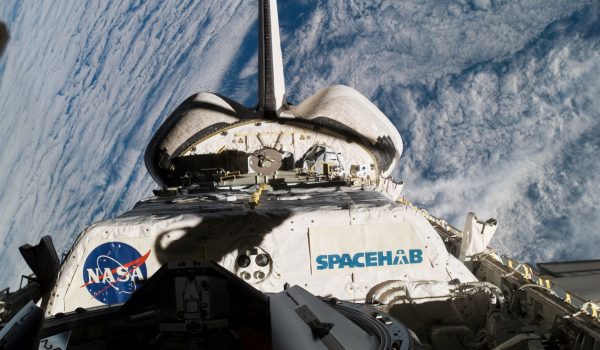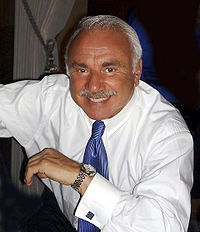
Robert A. Citron, aerospace engineer and pioneer of space tourism and space privatization, died on January 31st at his home in Bellevue, Washington from complications of prostate cancer. He was 79.
“Bob had an intense passion for opening the space frontier to humanity,” said Charles Miller, former NASA senior advisor for commercial space. James Muncy, a space policy consultant in Washington DC, recalled that “the power of Bob’s ideas, technical designs and business concepts made space business, including businesses involving humans in space, more real.”
After graduating from Inglewood High School, Citron served in the US Air Force during the Korean War, and earned degrees in liberal arts from the University of the Philippines and aeronautical engineering from Northrop University in Inglewood. While at Northrop, he became the director of the Pacific Rocket Society’s satellite tracking station, and managed to track Sputnik 1 only 48 hours after its surprise launch in 1957.
After launching the Smithsonian Institute for Short-Lived Phenomena in Cambridge, Massachusetts in 1968, and forming Education Expeditions International in 1969, he shifted his focus to space travel, and in particular, space tourism. In 1983 he developed Spacehab, a pressurized module designed to transport human passengers in the cargo bay of the Space Shuttle. Although NASA felt it would be too risky to carry human passengers in the module, it was repurposed to carry scientific experiments, flying on over 20 shuttle missions between 1993 and 2011.
With Spacehab, Citron also proved that the private sector was capable of producing flight-capable space hardware much more inexpensively than the public sector. Citron was able to produce two Spacehab modules for a combined 150 million USD, instead of the 1.2 billion USD estimated by NASA.
Citron went on to pioneer many commercial space enterprises: in 1993, Citron co-founded Kistler Aerospace, with the intent of developing a reusable commercial launch vehicle capable of reaching low-earth orbit and resupplying the International Space Station. In 2004, in response to the NASA announcement that the US would pursue a lunar base, he co-founded Lunar Transportation Systems Inc. to develop a new, modular design for a commercial lunar transportation vehicle.
Robert Citron was born on September 14th 1932 in Brooklyn, New York. He is survived by his partner, Audrey Woodin; his sons Dave and Josh, his daughters Kelly Citron, Gavriella Aber, Leah Richeimer and Dena Samuels; his sisters Barbara Namerow and Cathy Bilovkski; 23 grandchildren, and a single great-grandchild.


















































































































![A trajectory analysis that used a computational fluid dynamics approach to determine the likely position and velocity histories of the foam (Credits: NASA Ref [1] p61).](https://www.spacesafetymagazine.com/wp-content/uploads/2014/05/fluid-dynamics-trajectory-analysis-50x50.jpg)



Leave a Reply